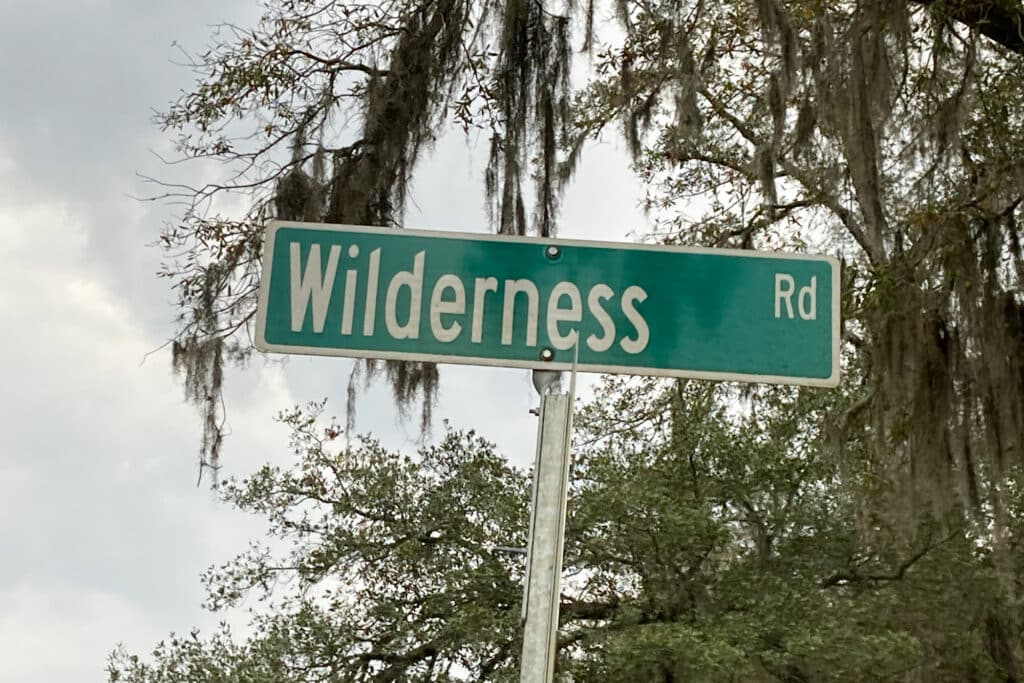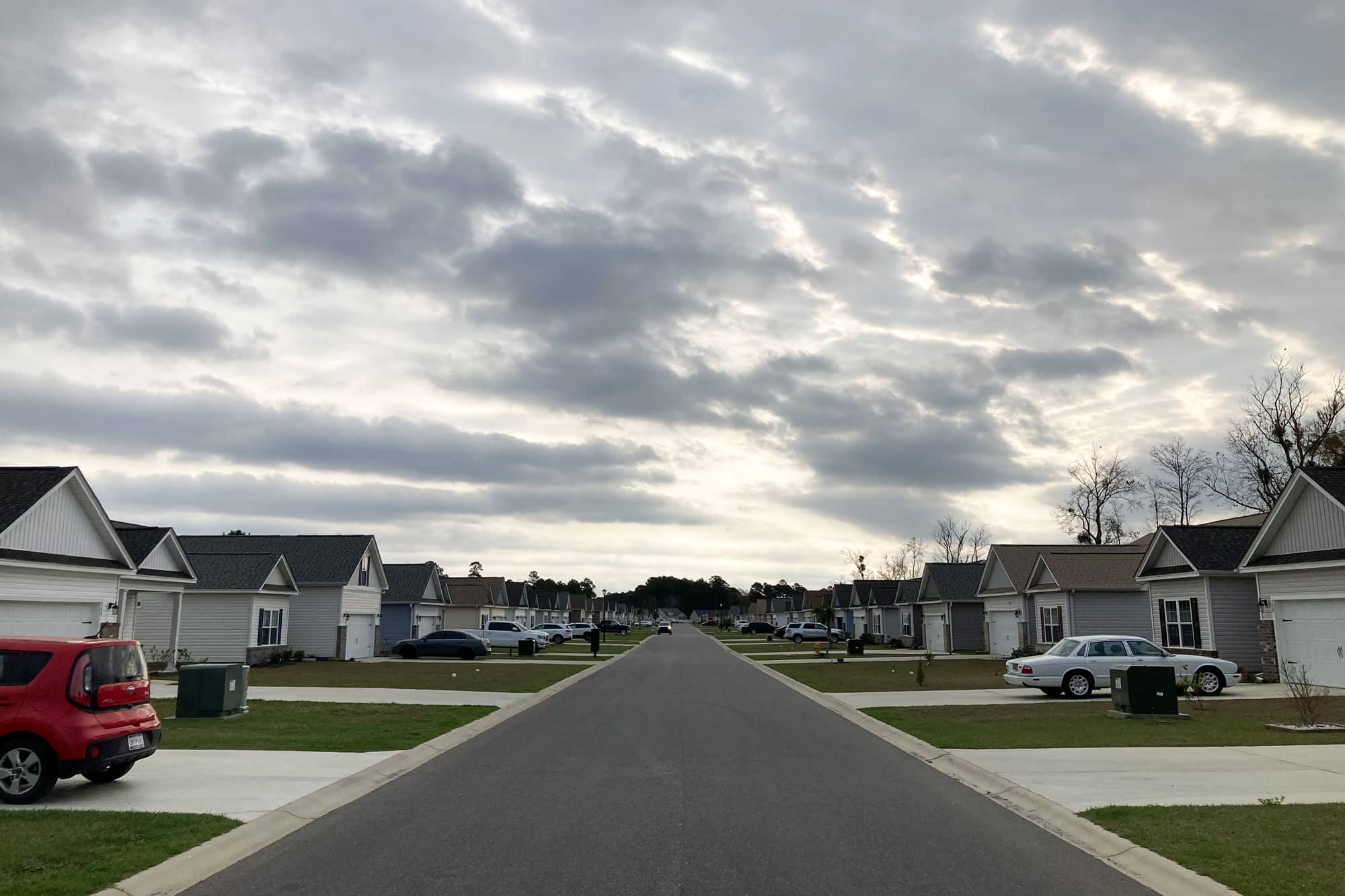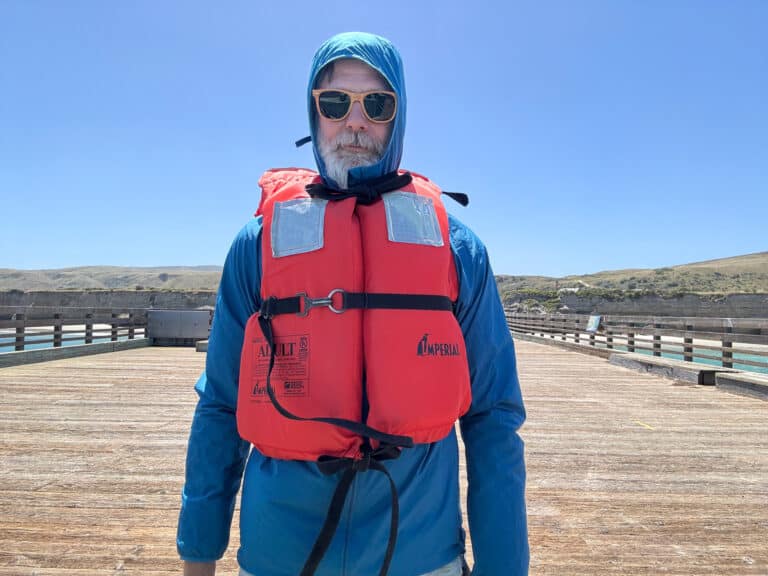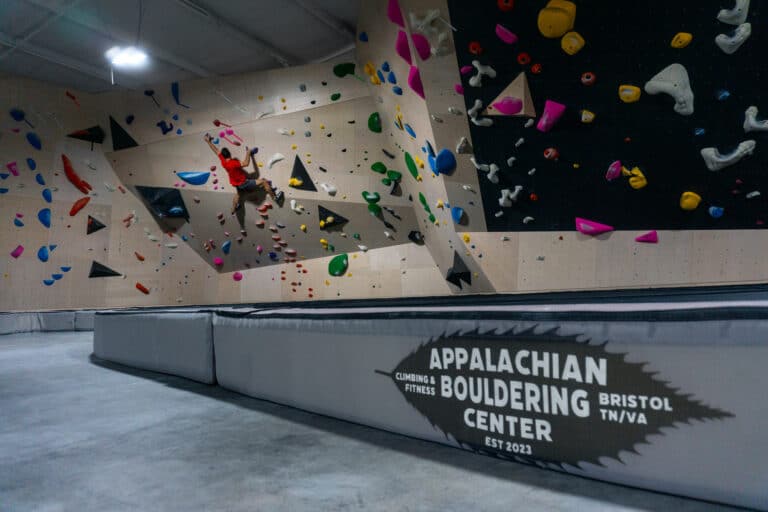A Family Emergency Keeps an Avid Outdoor Explorer Close to Home
“Hi, you are currently being recorded,” says a female voice. For the umpteenth time, I’m walking through our new neighborhood, setting off motion-triggered cameras every 10 steps. Passing the next home, that same tinny voice echoes. Across the street, a third voice chimes in, like these over-sensitive devices are singing in rounds. “Hi-hi, you-you are-are cu-currently be-being re-recorded.”
Past the Exurbs of Perpetual Surveillance, as I call them, I turn onto a road optimistically named Wilderness. On one side, country mansions. On the other, forest that will eventually be converted into homes. Where the road joins a rural highway, I turn around at the Baptist church with its latest witty sign: “Those who follow a righteous path don’t need Google Maps.”
Then I retrace my steps along the shoulder of Wilderness Road. My goal is to avoid the occasional aggressive driver—cutting through our neighborhood between two highways—who might buzz me into the ditch. After a bend, I pass a private farm with two ponies and one nesting osprey that circles and chirps until I’m gone. Where the road ends, I continue on a dirt path into the pine forest next to a private lake. I call it the World’s Shortest Nature Trail. It’s maybe a quarter mile, including two detours to the shore. I stare at the fish and turtles swimming through the tannin-rich blackwater and ponder the old days when I was free to travel at will. Then I walk back into the neighborhood for another lap. On the way, I pass a friendly old lady who drives a golf cart while “walking” her wiener dog, which mostly has to ride on the seat. I know the feeling.
Since last summer, this walking route in my South Carolina neighborhood has become one of the most adventurous things I do. During the middle of the pandemic, I was working out west on my upcoming book, “Discovering the Outlaw Trail,” when word came that my mom was ill with a mysterious non-Covid ailment. What followed was a hellish two years with three hospitalizations. A dozen diagnoses and misdiagnoses. Two stints in skilled nursing. Two stays in assisted living. And one attempted return to her apartment with home helpers, which failed when she further deteriorated. During that time, I drove and flew across the country eight times to visit and help. Yet after two years, we still hadn’t solved the mystery.

So, last June, my wife and I moved from our apartment near the university to a larger house in the exurbs, and my mom came to live with us. While she can do basic things on her own, like walking with a cane, she needs a substantial amount of assistance. We do the laundry and make all the meals. I manage her medications and take her to doctors’ appointments in hopes a recovery remains possible.
While I love my mom, and never hesitated about helping, I’d be lying if I said this was an easy transition. The move has completely changed our lives, which for fifteen years have been focused on two complimentary objectives. My wife wanted to be a professor, which led us to coastal South Carolina. I wanted to be a writer and photographer, and the move led me to full-time freelancing. This meant I could live anywhere and travel regularly to adventurous places for work.
But our family emergency disrupted everything. I refocused my career around client work and new topics like history and space travel, since traveling to distant adventures was mostly out. Even my exercise habits had to change, given that I often drove to regional trails or waterways. Now, my mom needed me around, and I could only sneak away for a few hours here and there. To stay sane and avoid caregiver burnout, I had to find feasible adventures around the neighborhood, like my walking route.
During hot weather, I start around six a.m. I’m the youngest walker among a slew of friendly retirees. We wave hello, chat about the unruly weather, occasionally march together in a multi-generational pack. One retired neighbor is an Appalachian Trail section hiker who returned in September with only eight miles left out of roughly 2,200. He twisted his knee only seven miles short of the summit of Mt. Katahdin. He’s going back next summer to finish, including one final mile purposefully left untrodden near his former hometown, which he will hike with friends to celebrate.
Another neighborhood walker is Jim, an old school expat from England who is always complaining that England isn’t England anymore because no one speaks English. (A recent census suggests around one percent, but I’m here for the adventure, not fact-checking neighbors.) But Jim is a riot. He wears shorts with high socks and a brimmed camo hat. While the rest of us scoot along the shoulder, Jim strides with a wooden staff down the middle of the road, daring the speeding cars to hit him. He’s basically our neighborhood’s camo-clad Gandalf: “You drivers cutting through our neighborhood cannot pass!”
One time, Jim suggested I take my paddleboard out on the neighborhood’s private lake. But when he learned my address, Jim shook his head.
“Ah, you’re an easterner.”
Jim went on to explain that our neighborhood includes two feuding housing developments. One is the original and highly sought Elizabeth Lakes, where he lives. Turns out, I live in the newer Elizabeth Lakes East. In front of the entrance sign, the cagey developer planted some bushes that conceal the word “East.”
“If anyone asks where you live, just give them my address,” Jim offered.
Instead, I usually head a few miles north to the Waccamaw River for paddling. I paddle past the town waterfront, watching for motorboats and alligators, and explore the blackwater sloughs. Last October, I paddled back to town to find the waterfront lined by hundreds of spectators. I ended up floating through a Halloween boat parade, with a dozen residents asking, “Where’s your costume?”
“I’m clearly dressed up as a whitewater paddler trapped in the Low Country,” I muttered, while smiling and waving.
Another neighborhood adventure involves riding my fat bike to an old haunt, Waccamaw River National Wildlife Refuge, which I like to call the Refuge of Lowered Expectations. This ride starts along the shoulder of a major highway, crosses several chaotic intersections, and continues down a rural road where snarling dogs chase me. I consider this section sprint training.
Near the refuge entrance, I detour past a yapping terrier named Maggie. I rescued her last year while she was lost with only an electric collar that had no address. After following me through the refuge for hours, it was clear Maggie possessed zero canine survival skills other than adorably befriending strangers. I mean, I watched her stumble obliviously over a snake’s tail. So, my wife and I drove Maggie slowly around the neighborhood until she started tail-wagging outside her home, where we learned her name. After waving hello to Maggie, I ride laps inside the refuge for a few hours before pedaling home through the college campus.
With planning, like leaving pre-made meals for my mom, I’m sometimes able to venture a little farther. I might ride the Hulk, a nearby mountain biking park. Or I’ll walk the beach and wetlands at Huntington Beach State Park. Since I was home the entire summer, a few times I joined a buddy to sail his rowdy catamaran off Myrtle Beach. And in December, my aunt graciously came to visit for a few weeks, which allowed my wife and me to take a whirlwind road trip to Florida.
My mom, meanwhile, has her ups and downs. In some ways, she’s better now than when she arrived last summer. We found her new doctors and home health programs, including physical therapy. She ditched a walker for a cane during the first month. Ever since, we take short walks around the block, along the waterfront, across the refuge boardwalk, or at the beach. Through trial and error, we found her better medications. But, in other ways, she’s sadly worsened. Her persistent tremors and episodic symptoms continue. She’s been to the hospital three times since arriving. She has regular nerve pain and sometimes cries out in the middle of the night.

Occasionally, she shares dreams about regaining her independence. Living on her own again. Having a late-life adventure. Perhaps she could still see a few places she missed? Places my wife and I would tell her about when we used to visit. Places that I explored after leaving home, like the Grand Canyon. It’s still possible, I say, hoping that it’s true.
When my wife and I returned from Florida, my mom surprised me with the news she’d be moving out. While we were away, she and her sister had toured an assisted living facility only a mile away. A pleasant place in a grove of oak trees, not far from the Baptist church on my walking route.
Since speaking has become a challenge, she explained in halting words that she needs more help than we realized. This way, she said, my wife and I would get our lives back. The three of us can do fun things again, like we used to. And my mom will have professionals who can help with the day-to-day necessities of her recovery.
Only a few days later, my mom and I drove the rural highway to a doctor’s appointment for the results of a biopsy. The news wasn’t good. There wouldn’t be the miraculous recovery that we once hoped for. No final adventure to see the Grand Canyon. Just daily living would be a challenge going forward.
We moved her over in mid-January. My neighborhood grounding has since lifted, but resuming a life with travels and adventures will feel bittersweet. I was willing to let that go if that’s what it took.
My mom and I still take our short walks. Her new place is now on my route. I pass through the neighborhood, greeting the friendly retirees whose old age is luckily going how everyone hopes it will. I turn onto the World’s Shortest Nature Trail, head down Wilderness Road, pass the Baptist church with its latest witty caption: “Our Sundays are better than Baskin Robbins.” Then I continue along the shoulder of the rural highway to the facility, where we visit in the oak grove. It’s not a situation that anyone hopes for. Life is an adventure, one that doesn’t always go as planned.
Cover photo courtesy of the author








